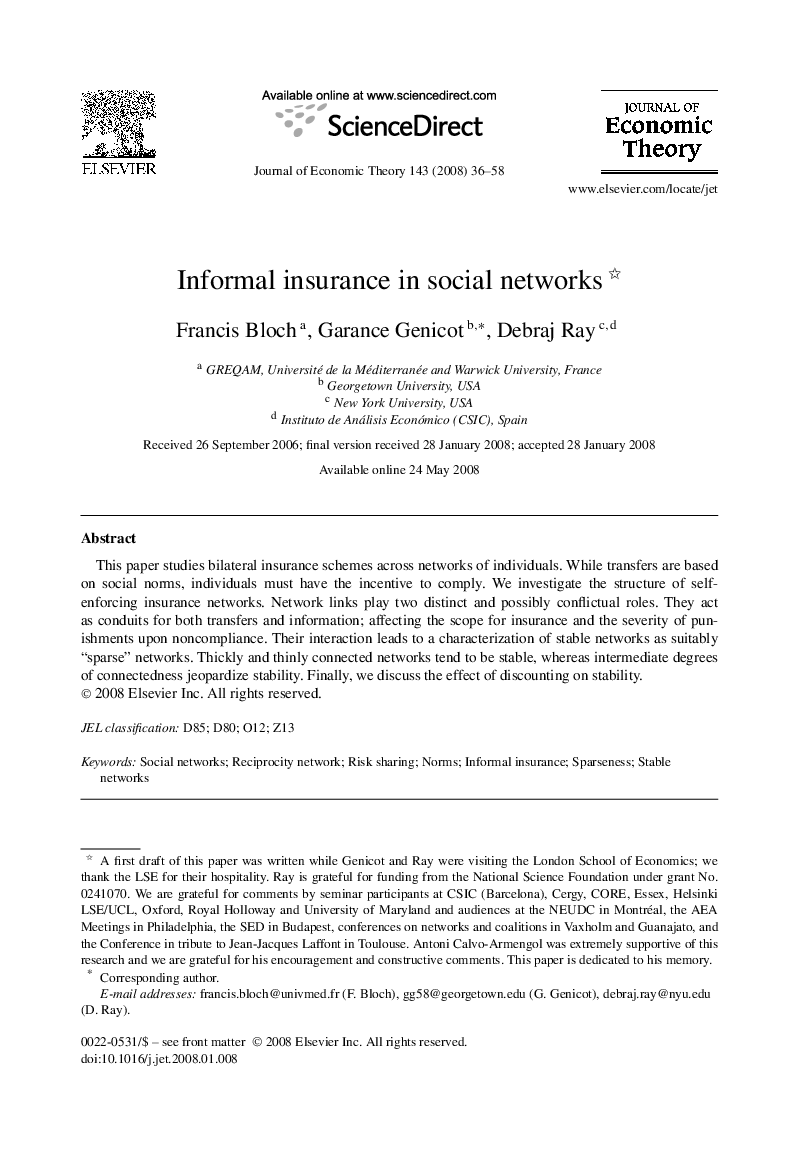| Article ID | Journal | Published Year | Pages | File Type |
|---|---|---|---|---|
| 957448 | Journal of Economic Theory | 2008 | 23 Pages |
Abstract
This paper studies bilateral insurance schemes across networks of individuals. While transfers are based on social norms, individuals must have the incentive to comply. We investigate the structure of self-enforcing insurance networks. Network links play two distinct and possibly conflictual roles. They act as conduits for both transfers and information; affecting the scope for insurance and the severity of punishments upon noncompliance. Their interaction leads to a characterization of stable networks as suitably “sparse” networks. Thickly and thinly connected networks tend to be stable, whereas intermediate degrees of connectedness jeopardize stability. Finally, we discuss the effect of discounting on stability.
Related Topics
Social Sciences and Humanities
Economics, Econometrics and Finance
Economics and Econometrics
Authors
Francis Bloch, Garance Genicot, Debraj Ray,
